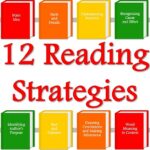4 Writer Work Habits And What Non-Writers Can Take From Them

Newport writes:
“This interests me because fiction writers are the epitome of deep workers (to make any progress, fiction writing requires your full concentration), and many of them, like [George R.R.] Martin, [Neil] Gaiman, and [Stephen] King, seem to rely on unusual but well-honed habits to get them into this mindset.
A natural question arises from this observation: Should those of us who work deeply in other fields follow their example?
This has been on my mind recently. In my pursuit to improve my ability to work deeply, I’ve paid a lot of attention to issues like scheduling (e.g., blocks versus lists) and tracking (e.g., milestones versus hour tallies).
Like many knowledge workers, however, I’m haphazard about the physical details that surround this work. I don’t have a special location or special tools I always use. I don’t have a head clearing ritual or hike to a hidden glen to tackle my knottiest problems.
But the more I hear about the habits of professional deep workers like novelists, the more I wonder if I should.”
We definitely see the value in Newport’s musings. The world of the novelist can be beneficial to the common student (or the grad major) because it relies on a number of criteria that are applicable across the board:
One: Attention To Detail.
Part of what makes George R.R. Martin so successful as a writer is that he pays laborious attention to detail. Crack open just one of his Game Of Thrones series of books, and you’ll see what we mean. He uses ancient mythology, an appreciation for fantasy storytelling of the past, and a voluminous knowledge of warfare to create books that go well beyond being simple stories on a page. They are worlds that live and breathe on their own. If you enjoy the TV series or any of Martin’s work, it’s in large part due to the legwork he puts in to each and every aspect of his world and his characters. As a result, there is a clear difference between Martin and your typical midlist writer. Midlisters may do a serviceable job, but they don’t create the following that Martin has amassed, and that’s because they don’t put in the extra work to cover every base.
Two: Writing With Passion.
We’re about to get off the George R.R. Martin parade. We’ll only say this about him: he shares one common trait that you can find in writers like Gaiman, King, and J.K. Rowling. He writes with passion. What does passion have to do with your studies and your education? Simple. The more passionate you are about what you’re studying, the more you will excel at it. Now admittedly, you will have to learn some things in life that are not very exciting. That’s just the way things go. But when it comes to selecting a major, passion will win out because it will find a way to motivate you and make you succeed where others fail. That doesn’t mean you should pursue a useless major simply because you like it, but it does mean that you should work to bring a creative spark into what you are studying. It’s possible, though it isn’t always easy.
Three: Second-Guessing Yourself.
It’s been said that you are your own worst critic. In writers’ circles, this is particularly true. Most writers — even the bestsellers who clearly know what they are doing — heap praise upon their editors and proofreaders because they know these individuals make them look even better. Most writers also look back with embarrassment at their earlier works because they feel like they are better writers in the present than they were “back then.” It’s true of virtually everyone who’s ever used a pen, typewriter, or word processor to tell a story. This humility is what drives them to read, read, and re-read everything they write before sending it along for a second opinion. They know the work can always be better and they punish themselves with the sheer amount of time they put in to achieving that unattainable goal of perfection. Sounds painful, we’ll admit, but it also leads to some really excellent work. A Song Of Fire And Ice. Carrie. Neverwhere. None of these would have been possible without that desire to second-guess the work and constantly improve upon it. Studying should be the same way. Don’t ever feel like you’ve learned all there is to learn because you haven’t.
Finally: Grow.
Working novelists — especially the successful ones — don’t typically get that way by writing one book and calling a halt to their careers. (Harper Lee, maybe, but few others.) Most continue to write, moving from one book to the next and refining their craft along the way. As a study animal, you should learn from this. You’ve never learned all there is to know on a topic. There’s always more, and the harder you work to improve your knowledgebase, the better off you’ll be.
In Summary
Everyone loves a good book, but few think about what went in to the craft of it turning out that way. But without the craft, the good book would not exist. Similarly, those who succeed in their fields are the ones who put in the time and energy to reach the summit of their abilities. A novelist’s work ethic can teach us much about what it takes to be successful in life, but only we can write the story by applying these principles to whatever educational challenge lays ahead. Good luck becoming the best at what you do!
[Image via TheAwl.com]








